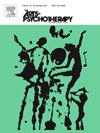日间安宁疗护病人主题开放式艺术工作室之评估
IF 1.5
3区 心理学
Q3 PSYCHOLOGY, CLINICAL
引用次数: 0
摘要
本研究评估主题开放艺术工作室对20名日间安宁疗护末期病人情绪幸福感的影响(平均年龄73.1岁;67% %女性)。在三个多月的时间里,参与者们围绕“自我”、“感恩”和“希望”等主题进行了一系列的创意活动。参与者使用简单的0-5李克特量表对每次治疗前后的情绪状态进行评分。统计分析显示,总体幸福感显著提高(平均增加+0.52点,p <; .001)。“自我”主题的得分最高(+0.9分),可能是因为它强调了内省和自我同情,其次是“感恩”(+0.7)和“希望”(+0.1)。值得注意的是,男性参与者比女性表现出更大的情绪改善(p = )。012),这表明围绕性别情感表达的文化规范可能会影响结果。参与者在创作自由(平均评分4.09/5)、成就感(3.89)、自我反省(3.88)、社会联系(3.82)和重新获得的生活意义(4.09)方面对该计划表示了很高的满意度。研究结果表明,在姑息治疗中,艺术工作室在培养情感弹性、个人洞察力和社会联系方面具有潜力。通过将主题艺术工作室整合到日常护理中,临终关怀可以更好地解决末期疾病复杂的社会心理层面,使患者能够有代理和尊严地度过他们的旅程。本文章由计算机程序翻译,如有差异,请以英文原文为准。
Evaluation of themed open art studio for day hospice patients
This study evaluates the impact of themed open art studios on emotional well-being among 20 terminally ill patients in day hospice care (mean age 73.1; 67 % female). Participants engaged in a series of creative sessions over three months, centered on themes of “Self,” “Gratitude,” and “Hope.” Participants rated their emotional states before and after each session using a simple 0–5 Likert scale. Statistical analysis revealed a significant overall improvement in well-being (mean increase +0.52 points, p < .001). The “Self” theme yielded the largest gains (+0.9 points), likely due to its emphasis on introspection and self-compassion, followed by “Gratitude” (+0.7) and “Hope” (+0.1). Notably, male participants showed greater emotional improvement than females (p = .012), suggesting cultural norms around gendered emotional expression may influence outcomes. Participants reported high satisfaction with the program with regards to creative freedom (mean rating 4.09/5), feelings of achievement (3.89), self-reflection (3.88), social connection (3.82), and renewed meaning in life (4.09). Findings demonstrate the potential of art studios in fostering emotional resilience, personal insight, and social bonding within palliative care. By integrating themed art studios into routine care, hospices may better address the complex psychosocial dimensions of terminal illness, empowering patients to navigate their journeys with agency and dignity.
求助全文
通过发布文献求助,成功后即可免费获取论文全文。
去求助
来源期刊

Arts in Psychotherapy
Multiple-
CiteScore
3.20
自引率
11.10%
发文量
66
期刊介绍:
The Arts in Psychotherapy is a dynamic, contemporary journal publishing evidence-based research, expert opinion, theoretical positions, and case material on a wide range of topics intersecting the fields of mental health and creative arts therapies. It is an international peer-reviewed journal publishing 5 issues annually. Papers are welcomed from researchers and practitioners in the fields of art, dance/movement, drama, music, and poetry psychotherapy, as well as expressive and creative arts therapy, neuroscience, psychiatry, education, allied health, and psychology that aim to engage high level theoretical concepts with the rigor of professional practice. The journal welcomes contributions that present new and emergent knowledge about the role of the arts in healthcare, and engage a critical discourse relevant to an international readership that can inform the development of new services and the refinement of existing policies and practices. There is no restriction on research methods and review papers are welcome. From time to time the journal publishes special issues on topics warranting a distinctive focus relevant to the stated goals and scope of the publication.
 求助内容:
求助内容: 应助结果提醒方式:
应助结果提醒方式:


